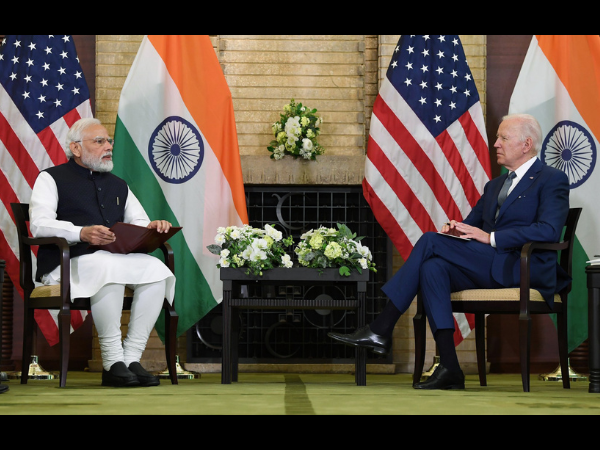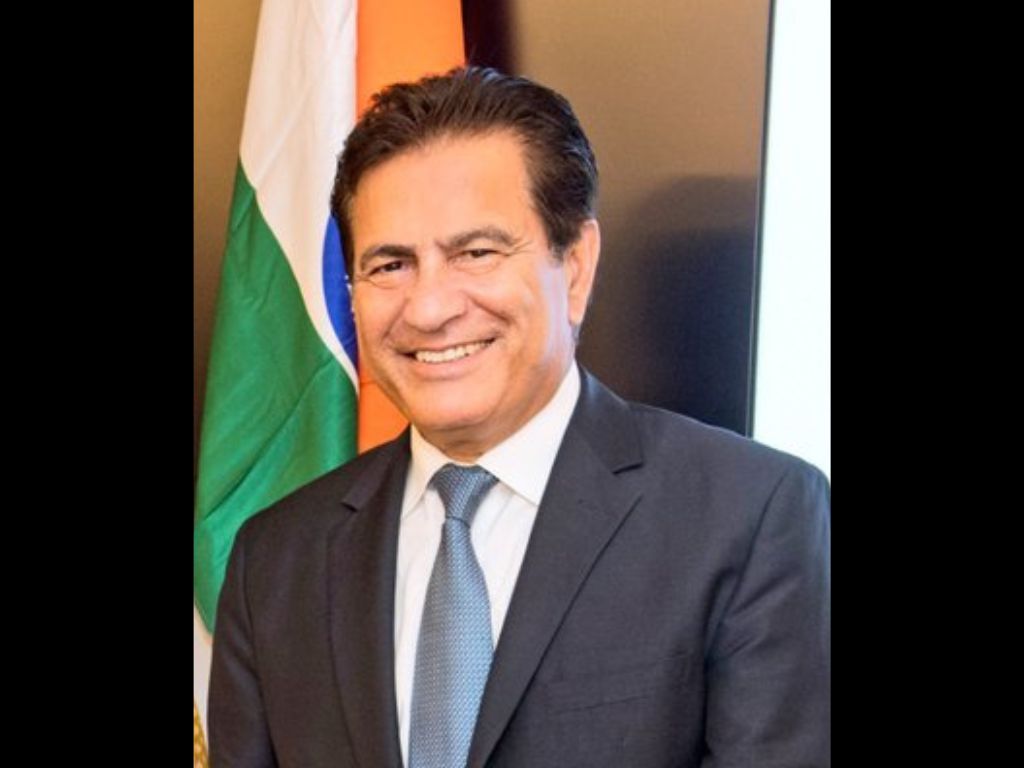- Saturday, March 01, 2025
I think it sends a message that these two countries are aligned geopolitically, economically and technologically and we are moving in the same direction, said Mukesh Aghi.

By: India Weekly Staff
The upcoming state visit of Indian prime minister Narendra Modi to the US on June 22 at the invitation of president Joe Biden sends a message that the two nations are aligned geopolitically, economically and technologically, Mukesh Aghi, president of US India Strategic and Partnership Forum (USISPF) has said.
Modi will embark on his first state visit and overall eighth visit to the US (as the prime minister) and president Biden and first lady Jill Biden will host him at a dinner.

Why Biden told Modi ‘You are causing me a real problem’ in Hiroshima
“It sends a message (to the rest of the world) that India’s growth story is for real. India is a rising power. India will be a great power one day and the world has to take India much more seriously,” Aghi told the PTI in an interview.
“I think it sends a message that these two countries are aligned geopolitically, economically and technologically and we are moving in the same direction,” he said.
USISPF is a top American India-centric strategic and business advocacy group.
“We are seeing that India is basically aligning more with democratic nations, which are focused on the rule of the law and working from that perspective, while what we are seeing is Russia, China, Iran, and North Korea having their own block itself,” he said. “It sends a message that India’s time has arrived. India will play a pivotal role. And I think Prime Minister Modi has done a fantastic job defining and exhibiting that leadership,” Aghi said.
At the same time, he noted, India also has to act more responsibly trying to make sure that it supports the south block from an economic agenda perspective, a food supply chain perspective, and energy security.
Modi, he observed, is the only leader who has been able to build a strong relationship with (Barack) Obama, (Donald) Trump and Biden.
“He has taken the entrust of India, he has taken the entrust of the US and found a common ground and then built a personal relationship with the leadership. To me, that really defines the partnership between the two countries,” he said.
Aghi hoped that during the visit, Modi gets invited to address the joint session of the US Congress, which would make him the first Indian leader to address the joint session of the Congress twice.
He also hoped there could be some kind of agreement where India can manufacture, for example, General Electric engines.
“If that happens, then again, it’s a tremendous success story because there are only four countries, that are able to manufacture hot engines, India would be the fifth one. So, I think economically I’ll send a message, geopolitically I’ll send a message. So, it’s a great honour for India and the Indian prime minister,” he said.
As China gets much more aggressive with US companies operating in the country, and as the US companies board plan to de-risk themselves from China, India has a pivotal role to play, he noted.
“One is providing a location for them to start manufacturing. The classic case is Apple, which has launched manufacturing in India. By next year it’ll be manufacturing almost 20 million iPhone 14 to be exported. There are a lot of other companies also looking from that perspective,” he said, adding that India also offers a huge market for US companies.
It is about providing manufacturing capability and about providing market opportunity. Then Indian companies are placing orders, for example, Tata’s order on Boeing of almost 500 plus jets. That sends a very strong message. Last year, Indian companies invested almost $40 billion into the US, thus creating jobs here.
Similarly, US companies are investing in India and creating more jobs in India. They are investing more, and more technology transfer is happening, he observed. “(US) corporate sector looks at this visit as a partnership, which is blossoming between the two countries. The corporate sector sees India as a market opportunity for the next 10, to 20 years itself. There’s a common understanding and common values. Hence, US corporations are able to set up not only just back-office centres, and now the trend is for innovation centres to come up with local solutions. We are seeing that the US corporate is going up the value chain, leveraging the talent in India also,” he said.
According to Aghi, if the PM can reach out to the US business community and convey a message that “We are a stable democracy, we are open for business, we are open for competition, please bring in your capital, please bring in your technology because we have a population of 1.4 billion people who will leverage, buy and use your products and services.”
So it’s important to convey a message that India’s open for business, India market is open for them and he is here to basically understand what else they need to be able to leverage investments into the country, Aghi said.
Observing that China will never treat India as an equal partner, Aghi said China lost India by its aggressive behaviour on the border. “It’s not India, which initiated anything, the Chinese who came out aggressively. So the sentiment among the people of India is that we need to find alternative sourcing of goods and capital goods itself and basically technologies,” he said.
(PTI)